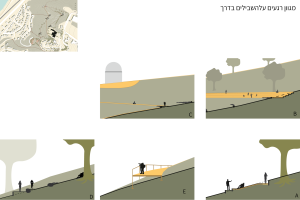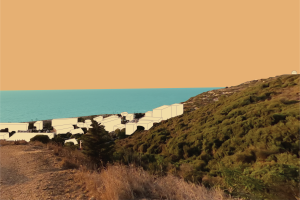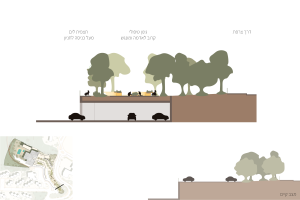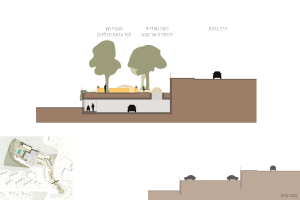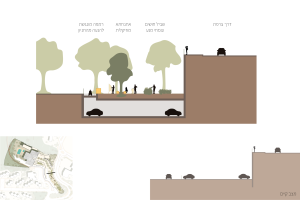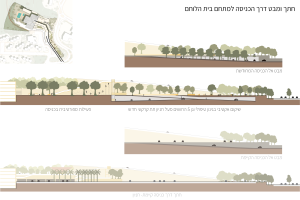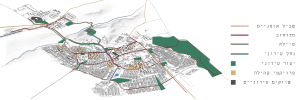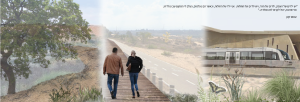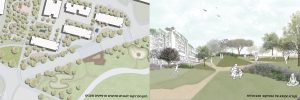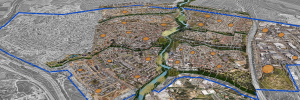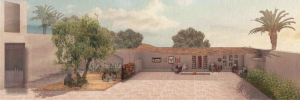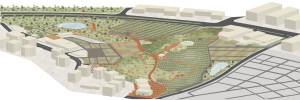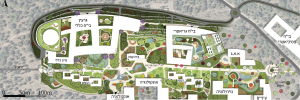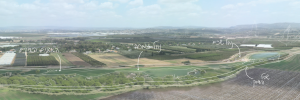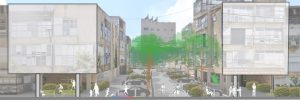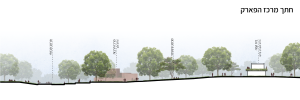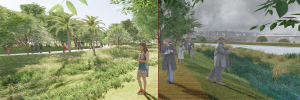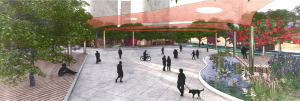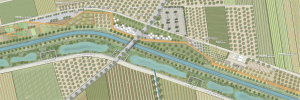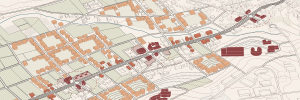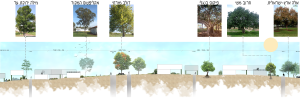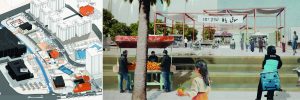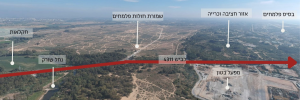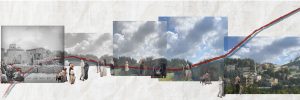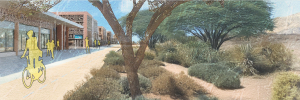A Mentally Protected Space
Beit HaLohem in Haifa, similar to all Beit HaLohem centers across the country, is a rehabilitative-social center serving disabled IDF veterans and their families. It is built on the slopes of Mount Carmel, surrounded by a large forest, and offers a broad view of the sea. Architecturally, it is an iconic structure, but does not effectively fulfill its functional role or take advantage of the surrounding forest and view. The building was constructed in the 1970s, and accordingly, it was designed based on the accessibility standards of that time. Since awareness to mental health was limited in those years, accessibility focused solely on physical aspects. In the early 2000s, the center underwent extensive renovations to improve physical accessibility, and a new wing was added to accommodate the significantly greater number of visitors. Today, the center serves tens of thousands of visitors, including thousands of individuals with post-traumatic stress disorder (PTSD), but it is not designed to meet their acknowledged mental health needs, according to current research and experience.
The project seeks to establish ‘mental accessibility’ in addition to physical accessibility at Beit HaLohem. This is a significant element in mental rehabilitation centers in particular, but also in community centers for individuals with mental health issues and in the war-stricken Israeli environment as a whole. Mental accessibility is based on principles of nature therapy and conversations with PTSD-afflicted members of Beit HaLohem. Its purpose is to provide open spaces supporting mental welfare, particularly for those with mental health challenges, and for all center users. By redesigning the entrances to Beit HaLohem and developing its open areas, while creating connections to the wadis of Haifa, and through them to the city’s neighborhoods, a space is created that is not only physically accessible but, more importantly, mentally supportive.







